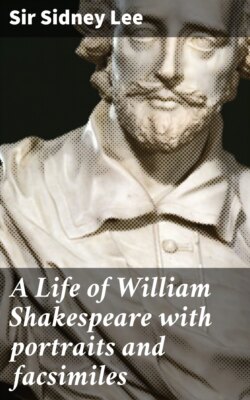Читать книгу A Life of William Shakespeare with portraits and facsimiles - Sir Sidney Lee - Страница 7
На сайте Литреса книга снята с продажи.
The poet’s ancestry.
ОглавлениеTable of Contents
The poet’s ancestry cannot be defined with absolute certainty. The poet’s father, when applying for a grant of arms in 1596, claimed that his grandfather (the poet’s great-grandfather) received for services rendered in war a grant of land in Warwickshire from Henry VII. [2] No precise confirmation of this pretension has been discovered, and it may be, after the manner of heraldic genealogy, fictitious. But there is a probability that the poet came of good yeoman stock, and that his ancestors to the fourth or fifth generation were fairly substantial landowners. [3a] Adam Shakespeare, a tenant by military service of land at Baddesley Clinton in 1389, seems to have been great-grandfather of one Richard Shakespeare who held land at Wroxhall in Warwickshire during the first thirty-four years (at least) of the sixteenth century. Another Richard Shakespeare who is conjectured to have been nearly akin to the Wroxhall family was settled as a farmer at Snitterfield, a village four miles to the north of Stratford-on-Avon, in 1528. [3b] It is probable that he was the poet’s grandfather. In 1550 he was renting a messuage and land at Snitterfield of Robert Arden; he died at the close of 1560, and on February 10 of the next year letters of administration of his goods, chattels, and debts were issued to his son John by the Probate Court at Worcester. His goods were valued at £35 17s. [3c] Besides the son John, Richard of Snitterfield certainly had a son Henry; while a Thomas Shakespeare, a considerable landholder at Snitterfield between 1563 and 1583, whose parentage is undetermined, may have been a third son. The son Henry remained all his life at Snitterfield, where he engaged in farming with gradually diminishing success; he died in embarrassed circumstances in December 1596. John, the son who administered Richard’s estate, was in all likelihood the poet’s father.
